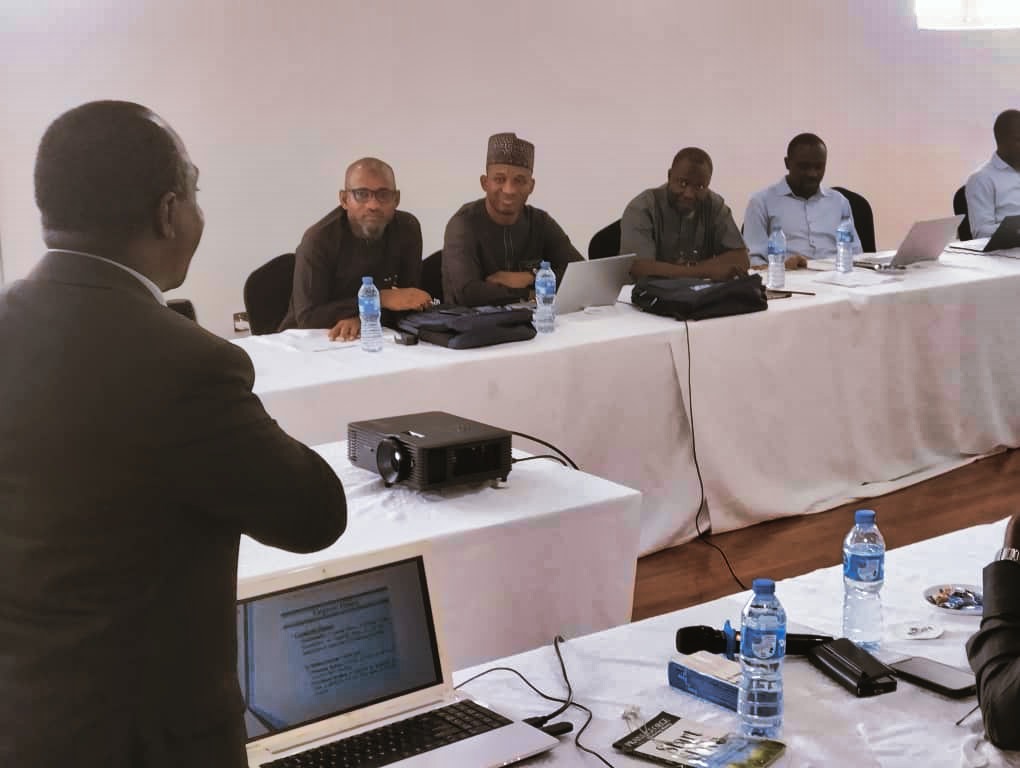Introduction: Expanding Financial Horizons (November 12th, 2024)
Day 2 of the ICAN Corporate Finance Management Certification Programme (Batch 2, November 12th, 2024) broadened the scope of learning, shifting from the foundational elements covered on Day 1 to a more comprehensive exploration of corporate finance principles, the intricacies of commodity and security analysis, and the critical skill of raising capital for business ventures. Facilitated by Ayokunle Omonijo, the day’s sessions provided participants with a deeper understanding of these key financial domains.
Setting the Stage: Arrival, Introductions, and Corporate Finance Fundamentals
The day began with registration and introductions, setting a welcoming and collaborative tone for the sessions ahead. Following a brief introduction of the facilitator, Ayokunle Omonijo, the first session delved into the fundamental principles of corporate finance.
This introductory session provided a crucial framework for understanding the core concepts that underpin financial decision-making within a corporate setting. Key topics included:
- The Goal of Corporate Finance: Participants explored the primary objective of maximizing shareholder value and how this goal influences various financial decisions.
- Financial Statements Analysis: A review of financial statement analysis techniques equipped participants with the skills to interpret financial data and assess a company’s financial health.
- Time Value of Money: The concept of the time value of money, a fundamental principle in finance, was revisited, emphasizing its importance in evaluating investment opportunities and making informed financial decisions.
- Risk and Return: The relationship between risk and return was explored, highlighting the trade-offs involved in investment decisions and the importance of risk management.
- Capital Budgeting Basics: The session provided a refresher on capital budgeting techniques, emphasizing their role in evaluating long-term investment projects.
Navigating the Markets: Commodities and Security Analysis
Following a refreshing tea break, the focus shifted to the dynamic world of commodity and security analysis. This session equipped participants with the essential tools and techniques to evaluate investment opportunities in these markets.
- Commodity Markets: Participants gained insights into the workings of commodity markets, including the factors that influence commodity prices, such as supply and demand dynamics, geopolitical events, and weather patterns. Different types of commodities, including energy, metals, and agricultural products, were discussed, along with the unique characteristics of each market. The session also explored various strategies for investing in commodities, including futures contracts, options, and exchange-traded funds (ETFs).
- Security Analysis: The session then delved into the intricacies of security analysis, focusing on equities (stocks) and fixed-income securities (bonds). Participants learned how to perform fundamental analysis to assess the intrinsic value of a security, considering factors such as a company’s financial performance, industry dynamics, and competitive landscape. Technical analysis techniques, which involve analyzing historical price and volume data to identify trends and patterns, were also explored.












Raising Capital: Funding Business Growth
The afternoon session, following a lunch break, addressed the critical aspect of raising finance for business ventures. Access to capital is essential for companies to invest in growth opportunities, expand operations, and achieve their strategic objectives.
- Debt Financing: Participants explored various forms of debt financing, including bank loans, bonds, and other debt instruments. The advantages and disadvantages of debt financing, such as the tax deductibility of interest payments and the obligation to make regular principal and interest payments, were discussed. The session also covered key considerations in securing debt financing, including creditworthiness, collateral, and loan terms.
- Equity Financing: The session also covered equity financing, which involves raising capital by issuing ownership shares in the company. Different types of equity financing, such as venture capital, private equity, and initial public offerings (IPOs), were explored. The advantages and disadvantages of equity financing, such as the dilution of ownership and the potential for higher returns, were discussed.
- Choosing the Right Financing Mix: The session emphasized the importance of choosing the right mix of debt and equity financing to optimize a company’s capital structure and minimize its cost of capital. Factors to consider when making financing decisions, such as the company’s stage of development, risk profile, and financial objectives, were highlighted.
Conclusion: Equipping Participants for Financial Success
Day 2 of the ICAN Corporate Finance training (Batch 2, November 12th, 2024) provided a comprehensive exploration of key financial concepts and practical skills. The engaging sessions, led by Ayokunle Omonijo, equipped participants with a deeper understanding of corporate finance principles, commodity and security analysis, and the strategic considerations involved in raising capital. Armed with this knowledge, participants are better prepared to navigate the complexities of the financial world and make informed decisions that contribute to their organizations’ success.




